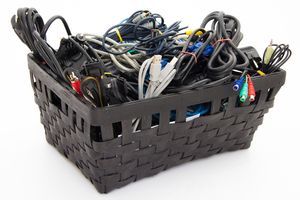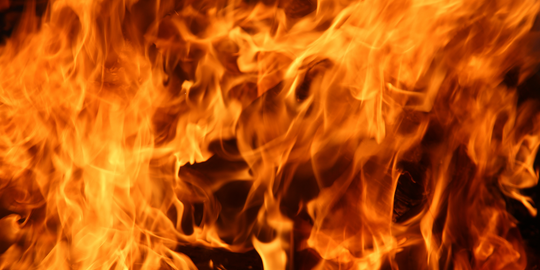Safely recycling cable, electronics and batteries

A blog by Antonia Grey, Head of Policy and Public Affairs at the British Metals Recycling Association
Today is both International E-Waste Day and the start of Recycle Week. Always a time for all of us to consider how we recycle, least of all us who work in the industry.
I confess I fell under the spell of Hypno Cat last weekend and all I thought about is cables, cables, cables. Diligently I gathered up all the cable I could find languishing in various drawers around my house. Rather embarrassingly, for someone who works in recycling, there was rather a lot of it; both with and without plugs!
Recycling cable is important, not least because they can comprise many valuable metal materials not least copper. According to Material Focus’ research, if 1 million householders recycled at least 1 cable we could divert 5,000 kg of copper from landfill.
Cable, however, is just the tip of the iceberg. Hundreds of thousands of items of waste electrical and electronic equipment (WEEE) are being incorrectly disposed of by householders either by being placed in the residual/black bin waste or by being placed in the recycling bin. This could see the valuable materials inside the WEEE and cable being lost because if placed in the wrong bin, it could end up in landfill or being incinerated.
Days like today presents a great opportunity for those of us in recycling to encourage householders to recycle their electricals; including cable.
Ideally, WEEE should be taken to the shop where a replacement item was purchased or a local household waste and recycling centre (HWRC). Materials Focus’ website – www.recycleyourelectricals.org.uk – offers users a simple way to identify the nearest place offering this service.
BMRA calling for kerbside collections
Accessing recycling locations is not always possible, however, so an alternative solution needs to be deployed. The BMRA has long since been calling for kerbside collection for WEEE. This would make is easier for householders to recycle and would likely increase recovery of those valuable materials found in all items of WEEE. More recently, given the increasing incidence of fires caused by lithium type batteries, we have doubled down on our demand for kerbside collection and expanded it to increase orphan lithium type batteries. Just one small button battery can reap havoc in a waste lorry, a metals recycling yard, even a home. Not only is the recovery of metal important, but the safety of people more so.
Only a very small percentage of the 300 plus local authorities in the UK currently offer such as kerbside collection. I understand that asking for another collection stream may appear onerous but firstly, the cost and impact of fires caused by discarded WEEE will be equally impactful. Secondly, in my opinion, and perhaps controversially, it is possibly time that the producers stepped up and became part of this solution. This includes to help pay for the cost to recycle the material they produce instead of local councils facing that burden of cost.
Regulating our way out of this issue maybe a solution but I am not sure it is one we have the time to afford. We really need prompt action as it is not fair to expect the waste industry to bear the cost of solving the twin issues of WEEE leakage and battery fires on their own.
And now for one more shameful confession. The bag of cable is still in the boot of my car… I will go to the recycler tonight.


